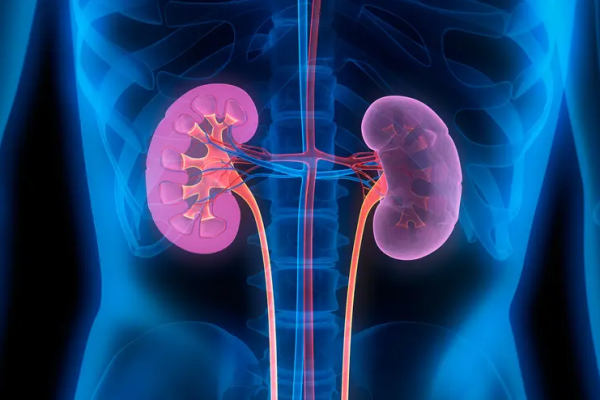Chronic Kidney Disease (CKD) Treatment in Iran

Types of Kidney Disease
Chronic Kidney Disease (CKD) is a condition where your kidneys cannot filter toxins or extra fluid from your blood as well as they should. While the condition can vary in how serious it is, CKD usually gets worse over time. Treatment can slow the progression of the disease. You may have a few symptoms in the early stages of chronic renal disease. You may not become aware that you have kidney disease until it has progressed.
If left untreated, CKD may lead to kidney failure. At this stage, called end-stage renal disease (ESRD), the condition must be treated by dialysis or a kidney transplant. Diabetes and high blood pressure are the leading causes of CKD.
Other common forms of kidney disease include:
-
Polycystic kidney disease: This genetic disorder causes cysts (fluid-filled sacs) to grow on your kidneys, limiting their ability to filter waste from your blood.
-
Lupus nephritis: Lupus is an autoimmune disease, meaning your immune system attacks healthy cells. Lupus nephritis happens when your immune system attacks your kidneys.
-
Interstitial nephritis: This condition happens when you have a bad reaction to a medicine that limits your kidneys’ ability to filter toxins. If you stop the medicine, your kidney health should improve.
-
Glomerulonephritis (Glomerular disease). Glomeruli are the thousands of tiny filters that remove waste from your blood in your kidneys. This condition damages them, and your kidneys can’t function as well. Inflammation in the glomeruli can also happen after a strep infection.
-
APOL1-mediated kidney disease: Normally, the APOL1 gene helps make an immune system protein, but if you inherit a mutated version of the gene from both parents, you may be more at risk for kidney disease. You may be more likely to have this gene mutation if you identify as Black, African American, Afro-Caribbean, or Latina/Latino.
-
Long-lasting viral illnesses: HIV and AIDS, hepatitis B, and hepatitis C may cause kidney disease.
-
Pyelonephritis: This is a urinary tract infection within the kidneys, which can result in scarring as the infection heals. It can lead to kidney damage if it happens several times.
What Are the Common Symptoms of Chronic Kidney Disease (CKD)?
Loss of kidney function can result in the following, depending on its severity:
-
Nausea
-
Vomiting
-
Appetite loss
-
Weakness and exhaustion
-
Issues with sleep
-
More or less frequent urination
-
Diminished mental clarity
-
Cramping in the muscles
-
Swelling in the ankles and feet
-
Itchy, dry skin
-
Uncontrollable high blood pressure or hypertension
-
Breathing difficulties, if there is an accumulation of fluid in the lungs
-
If fluid accumulates around the heart’s lining, chest discomfort may result.
Stages of Chronic Kidney Disease (CKD)
Chronic renal disease is divided into five stages. The phases are determined by how effectively your kidneys remove waste from your blood.
-
Stage 1: Although you have mild renal impairment, your kidneys function well. In this case, the glomerular filtration rate (GFR) is 90 mL/min or more.
-
Stage 2: You have additional indications of modest renal impairment, but your kidneys are functioning normally. This ranges from 60 to 89 glomerular filtration rate (GFR) (mL/min).
-
Stage 3a: Your kidneys exhibit mild to severe damage and are not functioning as well as they could. It is the most typical stage. At this point, you may experience symptoms. This results in a glomerular filtration rate (GFR) of 45 to 59 mL/min.
-
Stage 3b: Your kidneys are not functioning as well as they should and exhibit considerable impairment. Many people can remain at this stage and never move on to stage 4 with the correct care. This ranges from 30 to 44 glomerular filtration rate (GFR) (mL/min).
-
Stage 4: Your kidneys are badly damaged and nearly non-functional, resulting in extremely low renal function. This ranges from 15 to 29 glomerular filtration rate (GFR) (mL/min).
-
Stage 5: Your kidneys have either ceased functioning or are near failing. At this point, you might require kidney dialysis or a kidney transplant. This indicates a glomerular filtration rate (GFR) of less than 15 mL/min.
Causes, Risk Factors, and Complications of Chronic Kidney Disease (CKD)
Causes
The two most frequent causes of chronic kidney disease are diabetes and high blood pressure, or hypertension. Chronic kidney disease can also result from the following other factors and situations that impair kidney function:
-
Glomerulonephritis
-
Polycystic kidney disease
-
Membranous nephropathy
-
Blockages in the urinary system
-
Vesicoureteral reflux
-
Nephrotic syndrome
-
Pyelonephritis, or recurrent kidney infection.
-
Nephropathy associated with diabetes
-
Kidney issues caused by lupus and other immune system disorders
Risk Factors
The following variables may raise your risk of developing chronic kidney disease:
-
Diabetes
-
Increased blood pressure
-
Cardiovascular illness of the heart
-
Obesity
-
Smoking
-
Kidney illness in the family
-
Abnormal kidney anatomy
-
Older age
-
Regular usage of medications that can harm the kidneys
Complications
Nearly every bodily part can be impacted by chronic renal disease. Potential complications include:
-
High blood pressure, pulmonary edema, or swelling in your arms and legs could result from fluid retention.
-
Hyperkalemia
-
Anemia
-
Heart diseases
-
Weak bones and a higher chance of bone fractures
-
Central nervous system damage can result in seizures, personality problems, and trouble focusing.
-
Weakened immune system, which increases your susceptibility to infection
-
An inflammation of the sac-like membrane that surrounds your heart (pericardium), called pericarditis.
-
Risks associated with pregnancy problems for both the mother and the growing fetus
-
End-stage renal disease is irreversible kidney deterioration that ultimately necessitates dialysis or a kidney transplant to survive.
Connect with our advisor for a PRIORITY response.
How to Diagnose Kidney Disease
Your doctor will start by asking questions about your family medical history, which medications you are taking, and if you notice that you are peeing more or less than normal. After that, they will do a physical exam.
You may also have:
-
Blood tests to see how much waste product is in your blood
-
Urine tests to check for kidney failure
-
Imaging tests, like an ultrasound, are used to let the doctor see your kidneys
-
A kidney biopsy, where tissue from your kidney is sent to a lab for testing to figure out the cause of your kidney issues
